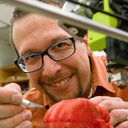Risk factors for surgical wound infection and bacteraemia following coronary artery bypass surgery.
Ključne riječi
Sažetak
BACKGROUND
There has been no consensus from previous studies of risk factors for surgical wound infections (SWI) and postoperative bacteraemia for patients undergoing coronary artery bypass graft (CABG) surgery.
METHODS
Data on 15 potential risk factors were prospectively collected on all patients undergoing CABG surgery during a 12-month period.
RESULTS
Of 693 patients, 62 developed 65 SWI using the Centres for Disease Control definition: 23 were sternal wound infections and 42 were arm or leg wound infections at the site of conduit harvest. There were 19 episodes of postoperative bacteraemia. Multivariate analysis revealed that: (i) diabetes, obesity and previous cardiovascular procedure were independent predictors of SWI; and (ii) obesity was an independent risk factor for postoperative bacteraemia.
CONCLUSIONS
These findings suggest that improved diabetic control and pre-operative weight reduction may result in a decrease in the incidence of SWI. But further prospective studies need to be undertaken to examine (i) whether the increased SWI risk in diabetes occurs with both insulin- and non-insulin-requiring diabetes, and whether improved peri-operative diabetes control decreases SWI; and (ii) what degree of obesity confers a risk of SWI and postoperative bacteraemia, and whether pre-operative weight reduction, if a realistic strategy in this patient group, results in a decrease in SWI.



